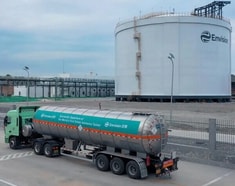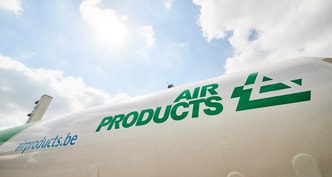Under pressure: Cutting and welding
Given the interdependent nature of countries and industries today, the economic downturn travelled somewhat like an inverted wave or trough, starting out from the source of the initial disturbance and radiating outwards, bending around industries that enjoyed some form of protection or were sustained by longer term contracts, but eventually affecting even those economies that have boasted the highest cash reserves and growth rates in recent years.
Globalisation – Economic efficiency
The emotive and controversial trend towards global integration of markets has its origin in the classical nineteenth century economic theories of Ricardo and Smith. They observed that global trade enriched all trading nations, by concentrating their national resources of materials, labour and capital on industries where they developed comparative advantage. Given the diversity of skills and resources found in different countries, each managed to develop national industries that achieved greater than average efficiency and therefore lowered their cost of production.
However, these economic models did not anticipate the unrestricted movement of capital or labour across national boundaries as we see happening today. Consequently, workers in most industries no longer compete with rivals in neighbouring towns; or even with competitors operating in other parts of their own country. Ironically it is workers in the developed economies who seem most vulnerable, because their global rivals are satisfied with far lower earnings and view poverty and starvation as threats that they are determined to escape.
Industrial gases the industrial barometer
One of the factors enabling the Industrial Gases industry to continually generate healthy profits is that the demand for gases is based on a very wide range of different end uses. It has seldom occurred during the past century that most of the gas consuming industries have suffered a downturn simultaneously. The worldwide recession that struck most countries in the final quarter of 2008 has highlighted that this is not always going to be the case.
Previous economic downturns were precipitated more often by market imbalances such as sudden shortages of crude oil caused by a war situation, the failure of agricultural production caused by freak weather, or other natural disasters. The trigger for the 2008 crisis however was something that industries depend on so universally, that the collapse in demand was seen to be far wider on this occasion.
Those countries and industries that have recovered most rapidly to pre-recession operating levels are those that were able to access alternative sources of cash. Monitoring the performance of the industrial gases business offers a surprisingly accurate gauge of an economy’s overall state of recovery. Typically the average year-on-year drop in sales of Industrial Gases has been around 17-25% which reflects reduced activity throughout all sectors of industrial activity. In many markets sales results in 2009 were around 10% lower than 2008.
Automotive manufacturing
Among the companies hardest hit during this recession are the world’s largest carmakers, especially those in the USA. Clearly buying the latest model car for many people is not currently an option, but this certainly does not imply that people are going without cars; rather it means that many people are planning to continue driving their current cars for longer.
This does of course imply a shift in demand away from the manufacture of new components and car assembly to the maintenance of older vehicles. To some extent the reduced demand for new cars has been offset by increased demand for spare parts, panel beating and other repairs. This trend isn’t unique to the automotive industry but is reflected in most sectors of the manufacturing industry from fabrication of plastics and metals through to electronics.
... to continue reading you must be subscribed









